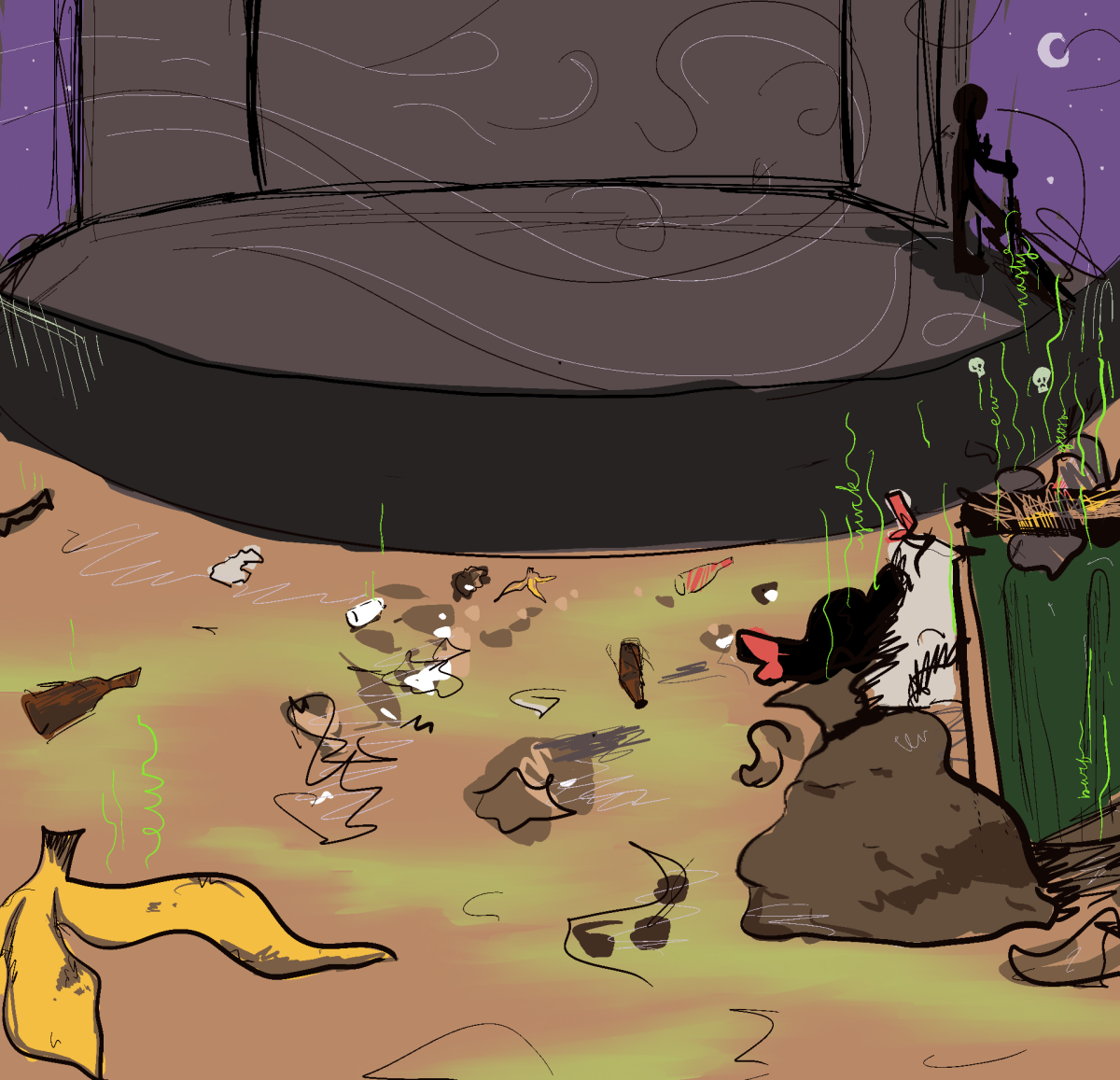The first two weekends in October, people flocked to Austin to attend the Austin City Limits (ACL) music festival. The promising performances and beautiful weather enticed many to Zilker Park for a weekend of live music. After all, who doesn’t love a few days with your friends, drinks in hand, surrounded by good music, good food and the sound of plastic bottles and cans crunching under your feet as you walk from stage to stage?
Music festivals generate about 23,500 metric tons of solid waste each year. Of all the recyclable waste created from cans, plastic bottles and food containers, only around 8% is actually recycled properly. Not to mention, the flights or road trips taken by festival-goers and performers contribute to rising carbon emissions. Even without considering transportation, the average festival produces about 500 tons of carbon dioxide emissions.
Large-scale festivals like Coachella hurt the environment even further. The constant blasting music and pounding bass contribute to noise pollution that not only harms human ears, but also impairs the natural activities of local wildlife who need to hear in order to hunt or hide. Attendees who camp out for the festivals leave behind trash and camping equipment that is then often thrown away by festival organizers. Concert-goers and influencers drawn to these festivals often dress up in fun outfits that can then be posted on social media, encouraging purchases of cheap, one-time outfits from fast fashion companies (an industry, by the way, responsible for the creation of 92 million tonnes of waste a year).
Some festival organizers have recently adopted more sustainable practices to offset some of these impacts. ACL has started selling drinks in cups that can be disposed of in special bins so that they can be cleaned and reused, reducing plastic waste. The festival has also started using compostable food containers, recruiting volunteers to direct waste to the appropriate bins (compost, trash or recycling) and emphasizing their water refill stations to encourage the use of reusable water bottles. Festival-goers can also participate in a new program designed to get attendees to aid in cleaning the copious amounts of beer and water cans that get thrown on the ground: people who fill a trash bag with cans from the grounds can get an exclusive ACL t-shirt.
Those initiatives don’t absolve the organizers from more responsibility, though. There’s always more that can be done, like finding ways to sort recycled materials to make sure they are properly disposed of and trying to reduce the amount of energy used by the stages, lights and instruments.
Music festivals are fun. So many people, myself included, love the idea of seeing multiple artists perform, spending time with friends and enjoying good music. However, it is important not to get lost in the enjoyment of a festival and forget that we have a responsibility to our Earth as well.
The burden of finding and implementing sustainable practices may fall on festival organizers, but each individual concert-goer has a responsibility to use the tools and infrastructure the organizers put in place to actually reduce the environmental impact of music festivals. It’s not enough for a festival to have water stations: we have to actually bring reusable water bottles and use them. We have to actually put the drink cups in the right bins so they can be reused. We each need to take on some of the responsibility of making music festivals more green.





